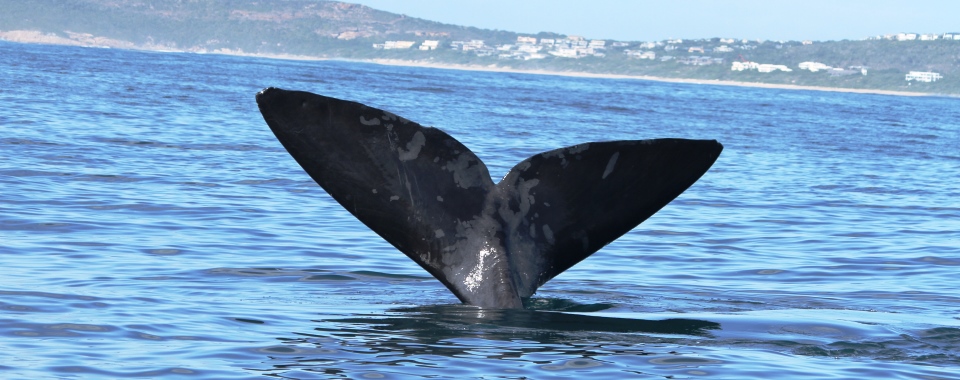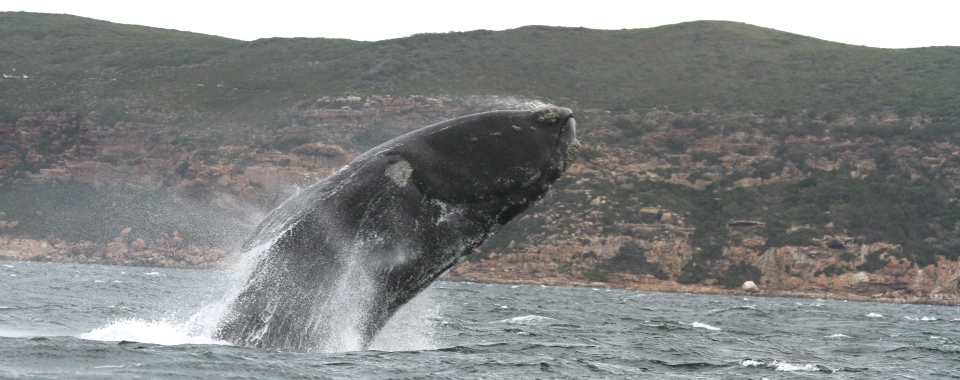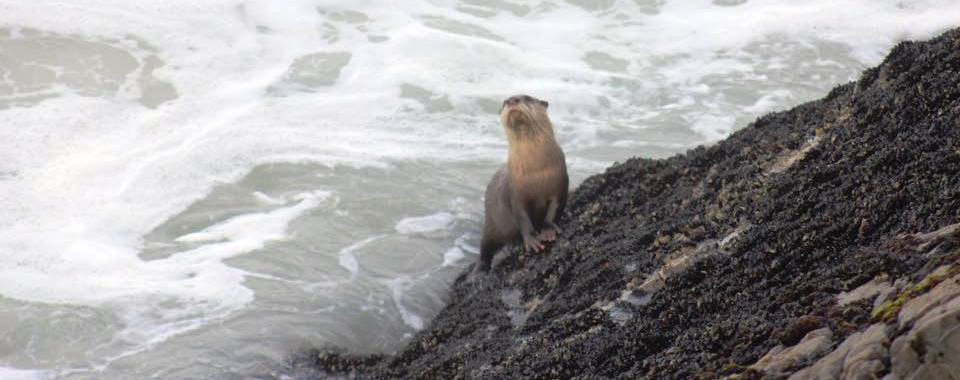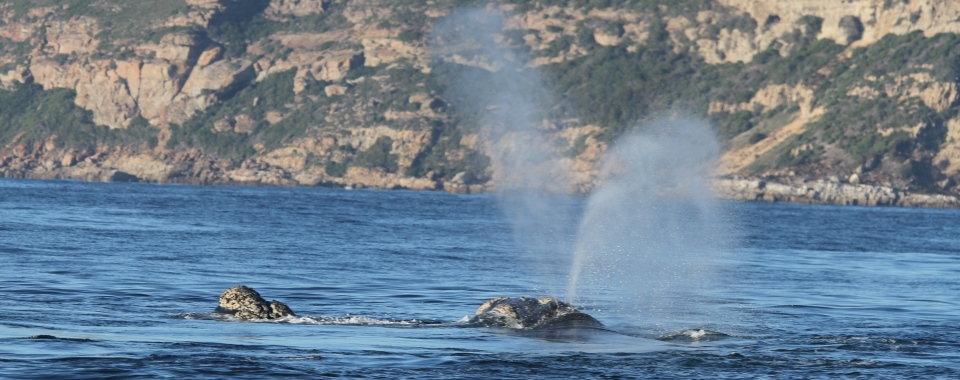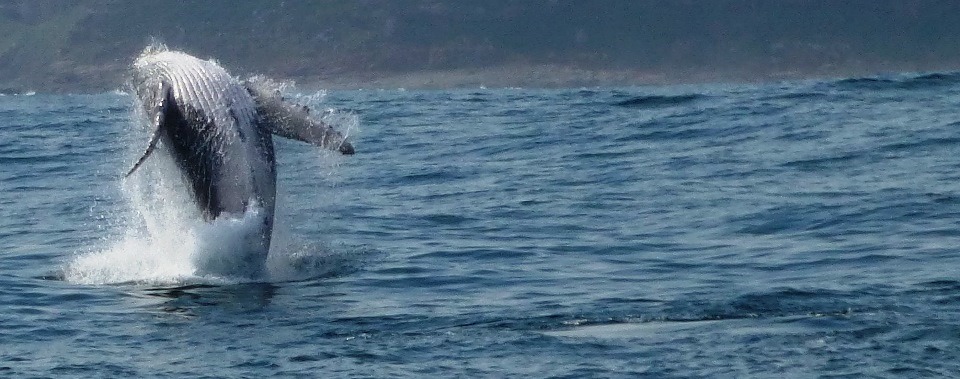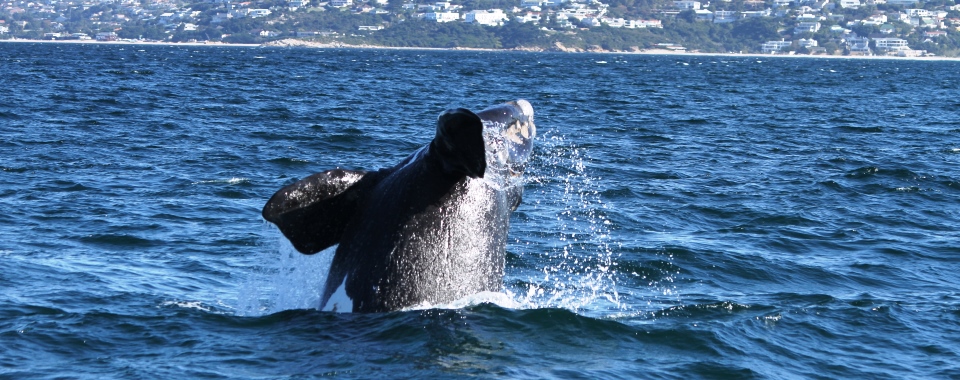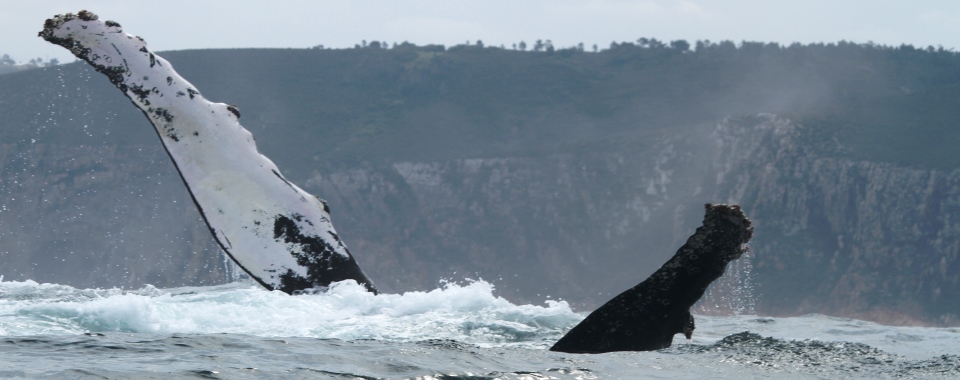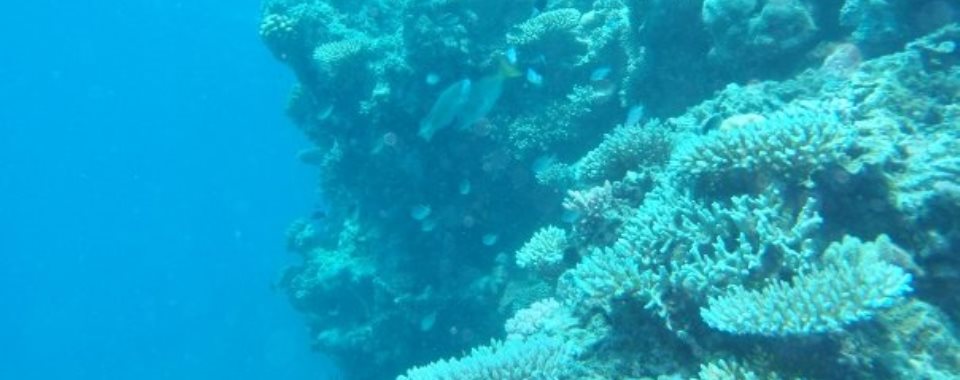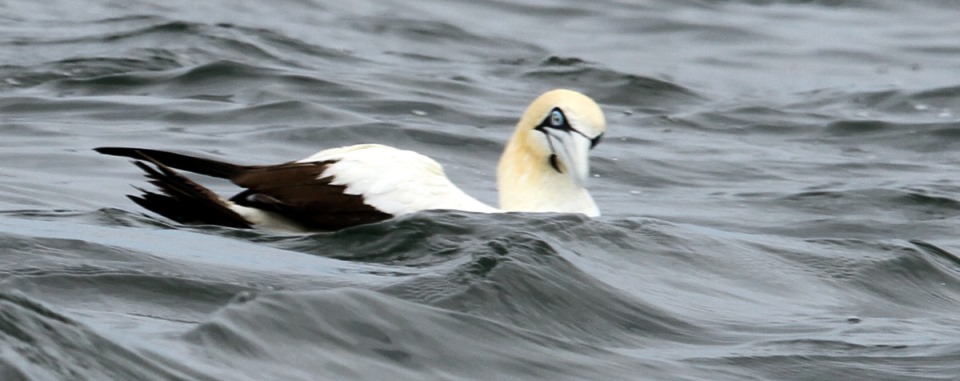Southern Right Whales have been well studied in Argentina, Australia and South Africa. When the Southern Right Whales arrive along the South African coast line they gather in shallow, calm, sandy bays to give birth and mate. The main concentration areas are in St Sebastian Bay, De Hoop, and Walker Bay, but they are seen READ MORE
Southern Right Whales have a circumpolar distribution. They can be found in the Antarctic during the southern hemisphere summer (where they feed) and in sub-tropical waters for breeding in winter. They are mainly found mating and breeding in shallow coastal waters off southern Australia, New Zealand, Argentina, Brazil and South Africa. There are speculations that READ MORE
When walking along the Plettenberg Bay beaches animal tracks can often be seen in the sand. These tracks usually belong to mongooses, dogs, small wild cats, numerous bird species and the ever elusive otters. In South Africa there are two species of otter, the Cape clawless otter (Aonyx capensis) and the Spotted-necked otter (Lutra maculicolll). READ MORE
Globally there are 3 different species of right whale; the North Pacific right whale (Eubalaena japonica), North Atlantic right whale (Eubalaena glacialis) and the southern right whale (Eubalaena australis). These three species look similar, but are divided into 3 separate species because they are geographically and genetically isolated from each other. The first part of READ MORE
Humpback whales can be found in all the world oceans. They are classified as one single species, but there are sub populations that should be classified as subspecies. Humpback whales from the northern and southern hemisphere should be recognized as separate species because they do not cross the equator. Around Africa there are six breeding READ MORE
Humpback whales can be found in most oceans and are well known for their extensive migrations which are some of the longest documented for any mammal species (over 8000 km in one direction). They migrate from their feeding grounds in polar waters to their breeding grounds in tropical waters. Why do they undertake these long READ MORE
The guests on our 09h30 trip were lucky to witness a southern right whale breaching just 100m away from the boat. It is astonishing how a 60 ton animal can propel its whole body out of the water. Why do they breach? It’s unknown, but could be a form of communication or to dislodge parasites READ MORE
Humpback whales are baleen (filter feeder) whales and belong to the Balaenoptera family. They are probably the most easily recognisable and familiar of all the large whale species in the world. Their scientific name Megaptera novaeangliae is derived from the Greek words “mega” meaning large and “pteron” meaning wing (referring to their long pectoral flippers READ MORE
Coral reefs are a beautiful and exotic attraction for many people around the world, and serve as an important economic benefit to the countries that have them on their coastlines. Many people do not realise that corals are actually colonies of animals (not plants) and are usually associated with clear, warm water in the tropics. READ MORE
Cape Gannets are large white birds with black wing tips, yellow skull cap, blue eyes and a prominent black line around the eyes. They are famous for their impressive plunge dive into the ocean at high speed to capture fish. They are able to survive this high impact due to an air cushion between the READ MORE


